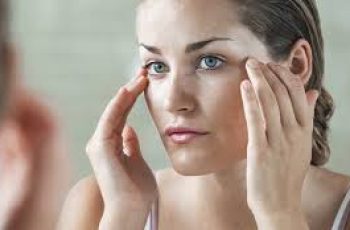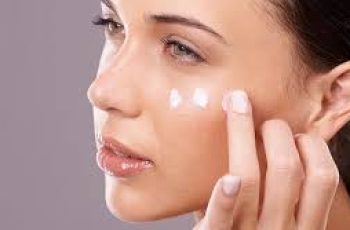
We Tested These Popular Moisturizers Side-by-Side and Picked a Winner
Choosing the right moisturizer can feel overwhelming—especially when the beauty aisle is packed with countless options, each promising hydration, glow, and youthful skin.
Your skin type and personal preferences heavily influence what will work best for you, making the search feel even more daunting.
Two of the most talked-about daily moisturizers available at drugstores are Vanicream Daily Facial Moisturizer and CeraVe Moisturizing Cream.
It’s no accident these two are favorites among skincare enthusiasts and dermatologists alike.
Both products are gentle, affordable, and versatile, suitable for all skin types, including sensitive skin.
But despite their similarities, they differ enough in formulation, texture, and packaging to make one better suited for certain users than the other.
After testing both thoroughly, we’re breaking down everything you need to know—so you can decide which moisturizer might be the winner for your skin.
1. Who Is Vanicream Daily Facial Moisturizer Best For?
In the vast world of facial moisturizers, finding a product free of common irritants can be surprisingly difficult.
Many contain dyes, fragrances, lanolin, parabens, or plant extracts—all ingredients that can trigger reactions or clog pores, especially if you have very sensitive skin.
Vanicream Daily Facial Moisturizer stands out because it excludes all of these controversial ingredients.
Its formula is simple, focusing on a handful of gentle, hydrating components such as:
Hyaluronic acid, which attracts and retains moisture in the skin
Ceramides, essential for repairing the skin’s protective barrier
Squalane, a lightweight oil that nourishes without feeling heavy or greasy
Because of this minimalist approach, Vanicream is often recommended for people with ultra-sensitive or acne-prone skin who need hydration without irritation or breakouts.
2. Who Should Consider CeraVe Moisturizing Cream?
If you want a rich, nourishing cream that works on both your face and body, CeraVe Moisturizing Cream deserves your attention.
This thick, creamy formula provides long-lasting moisture to dry patches anywhere—from your face to rough elbows and knees—without ever feeling greasy.
CeraVe is beloved by many, especially those with very dry or sensitive skin who need intense hydration. It contains:
Ceramides and hyaluronic acid, like Vanicream, to replenish the skin barrier and attract moisture
Dimethicone, a silicone-based ingredient that provides a smooth, silky texture and locks in moisture
One of the benefits of CeraVe is the sheer quantity you get per purchase. The large tubs last a long time, offering great value for those who need generous amounts of moisturizer daily.
What Did We Consider?
When comparing these two moisturizers, we looked carefully at:
Ingredients: Balancing hydration with sensitivity to avoid clogged pores and irritation
Packaging: Practicality and hygiene
Texture: How the cream feels and spreads on the skin
Value: Price relative to quality and quantity
Ingredients: Moisture Minus Sensitivity
Winner: Vanicream Daily Facial Moisturizer
I recently started using tretinoin, a prescription-strength cream that exfoliates the top layer of skin to treat acne.
While excited about the potential benefits, I was unprepared for the resulting flaky, dry patches.
To manage this, I needed a moisturizer that would provide intense hydration without clogging my pores or reacting badly with my acne medication.
After a detailed look at ingredient labels, I found that Vanicream contains gentle, non-comedogenic ingredients like hyaluronic acid, ceramides, and squalane—ideal for sensitive skin prone to breakouts.
CeraVe Moisturizing Cream also contains ceramides and hyaluronic acid and is well-known for its moisturizing power.
However, because its formula is thicker and includes more ingredients, including dimethicone, I noticed it gave me breakouts in some areas.
Board-certified dermatologist Dr. Dhaval Bhanusali explains, “While CeraVe’s ingredients are nearly identical to Vanicream’s, the presence of dimethicone in CeraVe helps with a smoother application but can clog pores in certain people.”
Dr. Bhanusali adds, “Overall, Vanicream is a dermatologist favorite for very sensitive skin because it sticks to essential ingredients only and avoids anything potentially irritating.”
Packaging: Pump vs. Tub
Winner: Vanicream Daily Facial Moisturizer
The design of a moisturizer’s container isn’t just about looks—it plays a big role in product hygiene and preservation.
Contamination can cause your moisturizer to harbor bacteria, which can lead to breakouts or infections.
Vanicream uses a squeeze tube, which limits exposure to air and reduces the chance of dirty fingers contaminating the product.
CeraVe, on the other hand, comes in a large tub, meaning you have to dip your fingers directly into the cream. This increases the risk of contamination, especially with daily use.
That said, some stores do stock CeraVe in bottles with pump dispensers or travel-sized tubes, so you may want to look for these options if hygiene is a concern.
Texture: Milky Lotion vs. Thick Cream
Winner: Tie!
Texture preferences vary widely from person to person, so this one is truly subjective.
Vanicream’s consistency is similar to a light, milky lotion.
It spreads easily and absorbs quickly, which works well for people with oily or combination skin or anyone who dislikes a heavy feeling on the face.
CeraVe’s moisturizer is rich and thick, offering a luxurious, creamy texture that takes a bit more effort to apply evenly.
This makes it ideal for those with dry or very dry skin who want deep hydration.
Personally, I have oily skin and prefer the lighter texture of Vanicream, but many on our team favored the rich creaminess of CeraVe.
Value: Fairly Priced for Different Needs
Winner: Tie!
Both Vanicream Daily Facial Moisturizer and CeraVe Moisturizing Cream come at affordable prices relative to the drugstore market, typically ranging from about $10 to $20 depending on where you shop.
While I found better personal results with Vanicream, others with different skin types have had more success with CeraVe.
So value depends on what you need: Vanicream is less likely to clog pores and better suited for oily or acne-prone skin, whereas CeraVe is perfect for those seeking intense moisture for dry skin.
Regarding packaging, I prefer Vanicream’s squeeze tube for hygiene reasons. Still, CeraVe has improved some of its packaging with pump dispensers, which is a welcome update.
What to Expect When Purchasing a Moisturizer
Moisturizers can range in price from a few dollars to hundreds depending on brand and ingredients. When selecting your moisturizer, consider:
How often you’ll use it (daily use means investing in a formula you truly like)
What ingredients are most important to your skin’s health and needs
Your skin type (oily, dry, sensitive, combination)
The texture and feel you prefer on your skin
Both Vanicream Daily Facial Moisturizer and CeraVe Moisturizing Cream offer excellent quality at reasonable prices. They’re powerful options that provide effective hydration without breaking the bank.
What Is Byrdie Validation?
You might have noticed the Byrdie Verified seal at the top of this article.
This mark indicates that our team has thoroughly researched and tested every product on the list using a unique approach focused on what readers want to know.
Sometimes, beauty brands send us products for review, but our opinions are entirely our own.
While we may earn commissions from purchases made through links in our content, we never accept payment for positive reviews or recommendations.
The Byrdie Verified seal stands for trustworthy, unbiased product guidance.
Final Verdict
If you have sensitive or acne-prone skin, or you’re looking for a gentle daily facial moisturizer with minimal ingredients and a hygienic packaging design, Vanicream Daily Facial Moisturizer is likely the better choice.
If you have dry or very dry skin and want a rich, deeply hydrating cream that can also be used on your body, CeraVe Moisturizing Cream is a fantastic, budget-friendly option.
Ultimately, the “winner” depends on your unique skin type and personal preferences. Both products enjoy strong dermatologist support and positive user feedback, so you really can’t go wrong.


